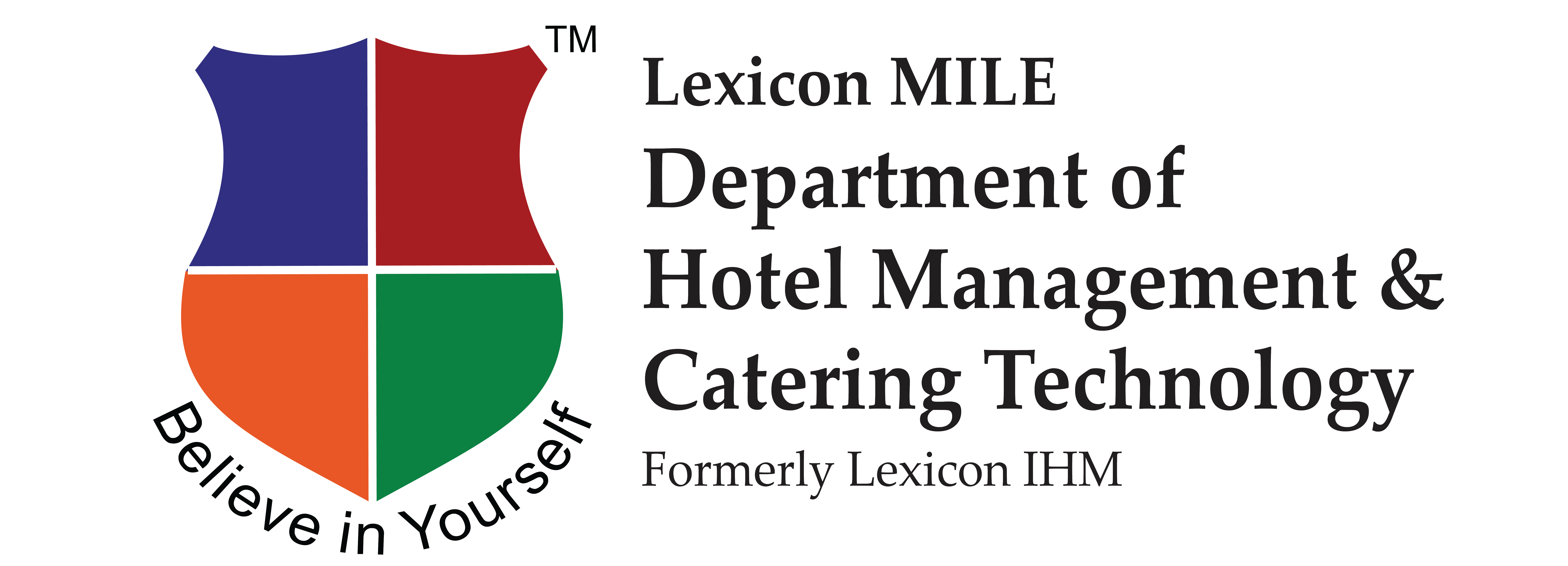Evolution of Indian Hospitality Business Post Pandemic
The Viral Armageddon
Hospitality is one of the oldest service sector in the world,
and it is not unfamiliar to tough times. The dark clouds
always pass! The Hospitality Industry was at the forefront
during the dreaded Global Pandemic, wave after wave and the
situation has never been so dynamic and so brutal. Economies
on earth buckled and businesses faced an uncertain future. The
Astrologers and Clairvoyants were all at Sea!
The Resurgence
The industry was able to see the silver lining after the
initial shock delivered by lockdowns, restrictions, and losses
in the early part of 2020, Revenge travel, Revenge tourism,
pre-festive holidays, first flight post lockdowns in
Incredible India Ahead of the festive season, holidays and
hotels are on top of mind! Staycations, Bizcations and
Homestay are the new jargons in Hospitality trends!
The global short stay market is about a trillion dollars
currently, impacted in 2021 by COVID-19. However, it is
expected to double to near $2 trillion by 2030. Within that,
the Indian market is expected to grow 5 percentage points
faster at 13 percent than the global market at 8 percent and
that’s a phenomenal upward trend.
In fact, not just ours, but it is also on the stock
markets' minds! Most hotel stocks have been surging to
near all-time highs, some also seeking a listing on the
bourses. From Oberoi to OYO everyone wants a slice of the
Indian travel pie.
The Math
Let us crunch the numbers and spell the opportunity out for
the Indian hotel industry.
As per multiple estimates and some back of the envelope
calculations, the Indian hotel industry was around Rs 80,000
crore in 2020, pre-pandemic, a jump from near Rs 50,000 crore
in FY15. However, with a massive decline in FY21, it is
expected to recover to near Rs 70,000 crore over the next 2
years.
We have about 1.46 lakh hotel rooms in India as of FY21, this
number too, is expected to approach 1.8 lakh crore over the
next 5 years that is nearly 30 percent addition. A more
holistic and wholesome recovery is yet to be on the cards and
in our view that is likely to happen by FY23.”
Online penetration of hotels is likely to increase from 33
percent in 2020 to 50 percent in 2025, this is an important
growth trigger given the rising growth in India's internet
economy.
92% of India's hotel industry is still unbranded.
Consumers have started to prefer the comfort of branded hotels
post the pandemic.
The Progression
Appetite for quality supply has grown in recent years as the
concentration of inventory in India’s top 10 cities has
reduced and broadened out to many newer and smaller towns, and
this trend is likely to continue. This is in line with the air
passenger traffic increasing in smaller cities too.
The big moment of the hospitality world came by with the rise
of the internet and the birth of tech-based hospitality
solutions like online travel sites, global aggregators like
Airbnb, our very own OYO, Saffron Stays, Vista Rooms and many
others.
Marketing starts from the consumer, and in hospitality,
consumers are called ‘guests.’
There has been an increased behavioural shift towards safety
and hygiene post the pandemic. Guests now want to see real and
credible efforts from establishments towards safe and hygienic
practices.
Hospitality has predominantly been a high contact industry.
Post the pandemic, organisations are adapting technology to
minimise human contact to the lowest possible levels and that
is the new Normal.
Technology’s New Basics
Hospitality industry, success is dependent on exceptional
customer service and human interaction. Consequently,
businesses are trying to adapt to consumer fears, vaccine
mandates, and health and safety ordinances. The shift in
priorities has led to hospitality trends that will impact
hospitality far beyond the coronavirus.
The hospital industry has long relied on technology to
simplify its operations. Key card and keyless hotel locks have
been staples in the hotel industry for over a decade. Mobile
check-in has become a standard in most hotel operations
internationally since its introduction in 2013. To further
ease solo and business travellers’ anxieties and adhere to
social distancing guidelines, hotels have leaned into
contactless guest experiences by integrating more
technology.
Smart hotel rooms are optimized to work in tandem with
smartphones and mobile apps allow guests to take advantage of
amenities and services without interacting with staff. Apps
enable visitors to make reservations, put down deposits,
check-in to their rooms, use touch-free digital menu systems
to order room service, and pay for services right from their
phones. Digital wallet platforms like Google Pay and Apple Pay
have increased contactless payment options, making the
check-out process quicker and more efficient.
Customer Service rewritten
In some regions, visitors can even scan QR codes to launch
virtual TV remote controls. Hotel staff can access guest
folios for service bills and automate maintenance orders
easily through the same apps. In addition, concierges and
front desk attendants can address guest questions and concerns
via chat features. Housekeeping has also been aided by the
technology boost with robotic cleaners and electrostatic
sprayers to sanitize rooms after check-out.
Hospitality businesses have upgraded their overall approach to
customer service. With guest safety as the highest priority,
communication has become paramount to gaining consumer trust.
Hotels and resorts have adopted pre-visit emails that outline
instructions related to Covid-19. These communications relay
any operative or systemic changes to returning customers. In
addition, some companies have used pre-visit emails to detail
the pandemic's impact on their business. Therefore,
clients better understand the precautions they are taking.
There is a huge demand for personalised, safe bubbles post the
pandemic, specifically in the upscale segment. People now
prefer a place which is more intimate, personalised and
secure.
The Greater Good
Lot of hospitality brands are diversifying into serviced
villa/apartment rentals, co-working spaces, and also into food
delivery, laundry & housekeeping services etc. for
ancillary revenue. So, marketers’ ‘to do’ list now is more
versatile and dynamic.
Hospitality businesses have upgraded their overall approach to
customer service. With guest safety as the highest priority,
communication has become paramount to gaining consumer trust.
Hotels and resorts have adopted pre-visit emails that outline
instructions related to Covid-19. These communications relay
any operative or systemic changes to returning customers. In
addition, some companies have used pre-visit emails to detail
the pandemic's impact on their business. Therefore,
clients better understand the precautions they are taking.
There is a huge demand for personalised, safe bubbles post the
pandemic, specifically in the upscale segment. People now
prefer a place which is more intimate, personalised and
secure.
Career Opportunities
68% of the Travel & Tourism workforce require re-skilling
in light of innovations occurring throughout the industry.
Hospitality companies are also upscaling efforts to attract
and retain a more diverse talent pool.
The sector is training staff to implement contactless service
and heightened hygiene measures, from sophisticated room
cleaning approaches to and other protocols that build consumer
confidence while protecting customer and employee safety.
Hospitality is becoming more of a career path and not just a
pay-check.
This shift has happened in just the last few years from both
the employee and employer standpoint. It has made the
hospitality industry better because when you have higher
retention, you have more engagement and loyalty from the
guests—and reduced training and turnover costs.”
Tourism and hospitality degree programs have seen a surge in
applications as a result.
New job profiles are emerging that include new positions that
merge safety, quality and sustainability. The result will be
more opportunity.
Experts believe, it’s the perfect time to be studying
Hospitality Management! When companies come back, they’re
going to be looking for more educated, critically thinking
employees who are able to drive the industry forward.”
Aspirants seek a wide range of sectors within hospitality and
tourism, including food and beverage, hotels, government
tourism authorities, airlines, cruises, resorts and casinos.
“It adds a lot of value and Skills are transferable between
all segments of hospitality and tourism.”
We Hope
That such a calamity is the last that mankind has seen and our
Indian hospitality sector continues to evolve through market
intelligence and technology to create the ultimate experience
for its guests and rewrite our leisure themes!
Author -- Gladvin Rego | Anup Sheth | Farheen Belgaumwala | Shubhangini Bhandari

